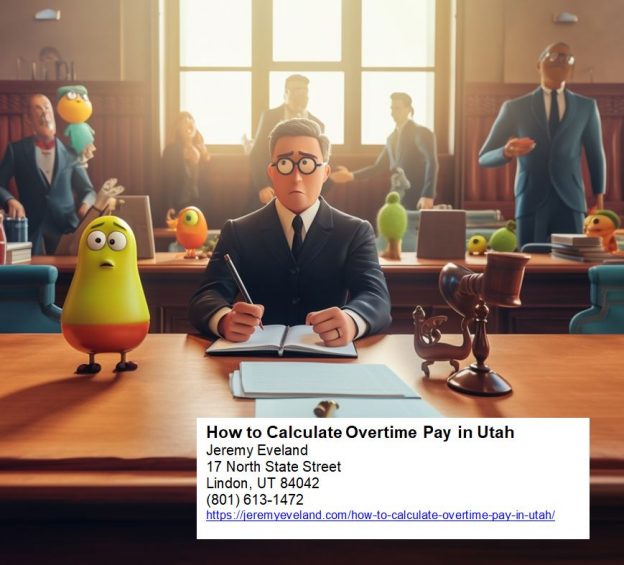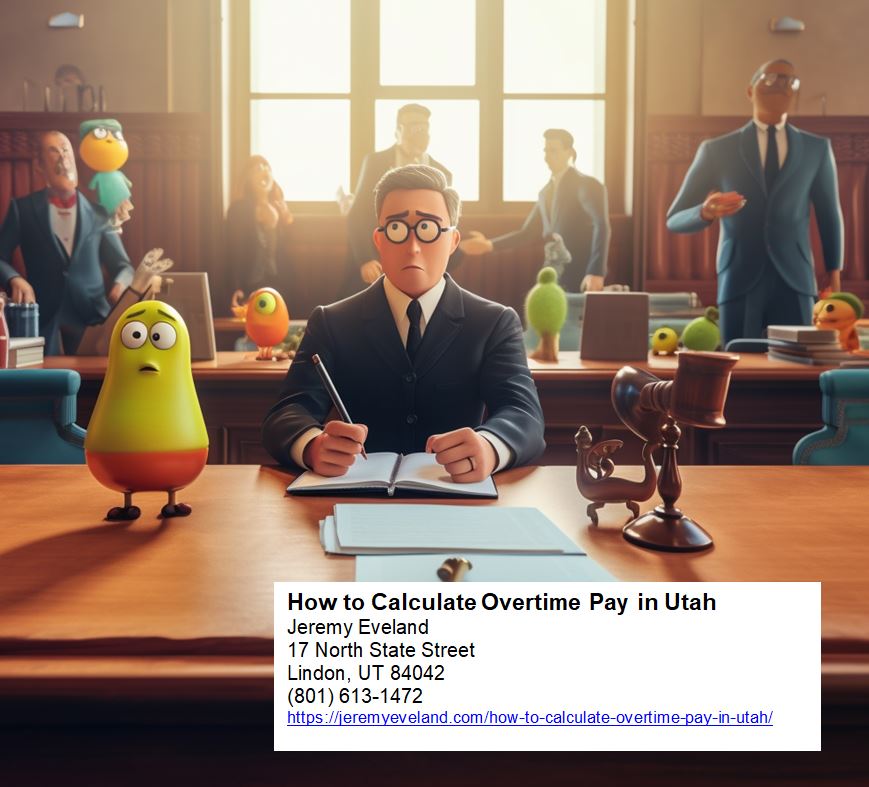In today’s complex and ever-changing business landscape, it is crucial for companies and business owners to have a comprehensive understanding of wage and hour laws. Ensuring compliance with these laws not only protects the rights of employees, but also helps businesses avoid costly legal disputes and potential damage to their reputation. In this article, we will explore the key elements of wage and hour laws, including minimum wage requirements, overtime regulations, and record-keeping obligations. By providing you with valuable insights and practical guidance, our aim is to empower you to make informed decisions and take the necessary steps to remain in compliance with the law. So, let’s delve into the intricacies of wage and hour laws and equip you with the knowledge you need to successfully navigate this legal landscape.

Understanding Wage and Hour Laws
Wage and hour laws are legislation and regulations set forth by the government to establish minimum wage, overtime pay, recordkeeping, child labor restrictions, meal and rest breaks, and other labor standards to protect employees’ rights in the workplace. These laws aim to prevent exploitation and ensure fair compensation for workers.
What are Wage and Hour Laws?
Wage and hour laws encompass a range of regulations that govern the compensation and treatment of employees. These laws address issues such as minimum wage, overtime pay, recordkeeping requirements, child labor restrictions, and meal and rest breaks. They are designed to protect the rights of workers and ensure that they are fairly compensated for their work.
Purpose of Wage and Hour Laws
The purpose of wage and hour laws is to establish and enforce standards for workplace compensation, hours of work, and working conditions. These laws aim to protect employees from unfair labor practices and exploitation by their employers. By setting minimum wage rates, regulating overtime pay, and enforcing recordkeeping requirements, wage and hour laws promote fair and equitable treatment of workers.
Who is Covered by Wage and Hour Laws
Wage and hour laws generally cover most employees in the United States. Whether you are a full-time or part-time worker, you are most likely protected by these laws. Independent contractors, however, may not be covered under the same regulations. It is important to understand the distinction between employees and independent contractors to know your rights and entitlements under wage and hour laws.
Major Federal Wage and Hour Laws
In the United States, several federal laws govern wage and hour standards. The Fair Labor Standards Act (FLSA) is the primary federal legislation that establishes minimum wage, overtime pay, child labor restrictions, and recordkeeping requirements for most employees. This law sets the baseline standards that employers must follow, although some states have their own laws that may provide additional protections for workers.
State-Specific Wage and Hour Laws
In addition to the federal wage and hour laws, individual states may have their own statutes and regulations governing employment standards. These state-specific laws often provide supplementary protections for workers, such as higher minimum wage rates, additional rest break requirements, or stricter child labor restrictions. It is important for employers and employees to be familiar with both federal and state laws to ensure compliance.

Minimum Wage
Federal Minimum Wage
The federal minimum wage is the lowest hourly wage rate that employers are legally required to pay most employees covered by the FLSA. As of July 24, 2009, the federal minimum wage rate is $7.25 per hour. However, certain states have enacted higher minimum wage rates, which employers must adhere to if they operate in those states.
State Minimum Wage Laws
Many states have established their own minimum wage rates that exceed the federal minimum wage. These state-specific laws aim to provide workers with a higher standard of living and reflect the cost of living in each state. Employers must pay the higher of the federal or state minimum wage rate, ensuring that employees are compensated fairly for their work.
Tipped Employees and Minimum Wage
For tipped employees, such as waitstaff or bartenders, the FLSA allows employers to pay a lower tipped minimum wage, as long as the combined amount of tips and wages received equals or exceeds the regular minimum wage. However, if the tip credit does not cover the difference, employers must make up the shortfall to ensure the employee receives at least the minimum wage.
Overtime Pay
What is Overtime Pay?
Overtime pay is additional compensation provided to eligible employees who work more than a certain number of hours in a workweek. It is typically set at a rate of one and a half times the regular hourly wage, also known as “time-and-a-half.” Overtime pay helps compensate employees for the extra time and effort they contribute beyond their regular working hours.
Eligibility for Overtime Pay
The FLSA establishes eligibility criteria for overtime pay. In general, employees who work more than 40 hours in a workweek are eligible for overtime. However, certain occupations and industries may be exempt from overtime pay requirements. It is crucial for employers and employees to understand these exemptions and ensure compliance with the law.
Calculating Overtime Pay
To calculate overtime pay, employers must determine the employee’s regular hourly wage and then multiply it by one and a half for every hour worked beyond 40 in a workweek. For example, if an employee’s regular hourly wage is $10, their overtime pay rate would be $15 per hour. It is important for employers to accurately calculate and pay overtime wages to avoid violations of wage and hour laws.
Exemptions from Overtime Pay
The FLSA provides exemptions from overtime pay for certain employees who meet specific criteria. Executive, administrative, and professional employees, as well as certain computer professionals and outside sales employees, may be exempt from receiving overtime pay. These exemptions are based on job duties, salary level, and other factors. Employers must carefully evaluate their employees’ roles to determine if they qualify for exemption from overtime pay.

Recordkeeping Requirements
Importance of Recordkeeping
Maintaining accurate and complete records is essential for employers to ensure compliance with wage and hour laws. Recordkeeping serves as evidence of hours worked, wages paid, and other labor-related information. It allows employers to demonstrate their adherence to legal requirements and serves as protection against disputes or claims.
Types of Records to Maintain
Employers should keep records of employees’ basic information, such as their name, Social Security number, and occupation. Additionally, employers should maintain records of hours worked each day, wages paid, deductions made, and other relevant information. It is essential to have a reliable system for documenting and organizing these records.
Retention Period for Records
The FLSA requires employers to retain records for a specific period of time. Generally, employers must keep payroll records, collective bargaining agreements, and sales and purchase records for at least three years. Additionally, records such as time cards, employee schedules, and wage rate tables must be kept for at least two years. Employers should consult the specific regulations applicable to their industry and jurisdiction to ensure compliance with recordkeeping requirements.
Child Labor Laws
Age Restrictions for Employment
Child labor laws establish age restrictions for employment to protect the well-being and education of minors. These laws dictate the minimum age at which individuals can work, the number of hours they can work, and the types of jobs they can perform. The purpose is to ensure that children are not exposed to dangerous or exploitative working conditions.
Hazardous Occupations for Minors
To further protect young workers, child labor laws specify hazardous occupations that individuals under a certain age are prohibited from engaging in. These occupations often involve activities that are physically demanding, require the use of heavy machinery, or expose workers to dangerous substances. By restricting minors’ involvement in hazardous work, these laws aim to safeguard their health and safety.
Permissible Hours and Conditions of Work
Child labor laws also establish restrictions on the hours and conditions of work for minors. These regulations typically limit the number of hours minors can work during school days and non-school days. They may also require specific breaks or rest periods to ensure that young workers are not overworked or subjected to unreasonable conditions.
Meal and Rest Breaks
Federal Requirements for Meal and Rest Breaks
Under federal wage and hour laws, employers are generally not required to provide meal or rest breaks to their employees. However, if employers choose to offer breaks, they must adhere to certain guidelines. For breaks shorter than 20 minutes, employers must generally count them as paid work time. Breaks longer than 20 minutes may be designated as unpaid, as long as employees are completely relieved of their duties.
State-Specific Laws on Meal and Rest Breaks
Many states have enacted their own laws regarding meal and rest breaks, providing additional protections for employees. These state-specific laws often require employers to provide designated meal and rest breaks of a certain duration or at specific intervals. Employers must ensure compliance with both federal and state laws to avoid violating employee rights.
Exemptions from Break Laws
Certain industries or occupations may be exempt from meal and rest break requirements, depending on the nature of the work and the state in which it is performed. For example, employees in certain healthcare, transportation, or public safety roles may be exempt from the usual break laws due to the demands and nature of their jobs. Employers should familiarize themselves with the specific exceptions applicable to their workforce.
Independent Contractors vs. Employees
Distinguishing Independent Contractors and Employees
Differentiating between independent contractors and employees is essential to determine the proper classification for workers. Independent contractors are self-employed individuals who provide services to a client or company but work and control their own schedules and methods. Employees, on the other hand, work under the direction and control of an employer and are subject to various labor laws and protections.
Consequences of Misclassification
Misclassifying workers as independent contractors when they should be classified as employees can have significant legal and financial consequences for employers. Workers misclassified as independent contractors may be denied access to benefits, minimum wage, and overtime pay. Additionally, employers may face penalties, fines, and legal action for noncompliance with wage and hour laws.
Factors Used to Determine Worker Classification
To determine worker classification, both federal and state labor agencies consider several factors. These may include the extent of control exercised by the employer over the worker, the worker’s investment in their own business, the nature of the relationship between the parties, and whether the work done is an integral part of the employer’s business. Employers should carefully evaluate these factors to ensure compliance with worker classification requirements.
Enforcement and Penalties
Compliance with Wage and Hour Laws
Employers are responsible for complying with wage and hour laws to protect their employees’ rights and avoid legal issues. Compliance includes paying employees at least the minimum wage, providing overtime pay when applicable, maintaining accurate records, and adhering to child labor restrictions. Employers should regularly review their practices and policies to ensure compliance with all applicable laws.
Investigations and Audits
Government agencies such as the Department of Labor may conduct investigations and audits to verify employers’ compliance with wage and hour laws. These investigations may include reviewing payroll records, interviewing employees, and assessing working conditions. Employers found to be in violation of these laws may face monetary penalties, legal action, and negative publicity that can harm their reputation and bottom line.
Penalties for Violations
Violations of wage and hour laws can result in severe penalties for employers. These penalties may include fines, back wage payments to affected employees, and potential criminal charges. In addition to the financial consequences, employers may also face lawsuits from employees seeking compensation for unfair treatment or unpaid wages. It is crucial for employers to maintain full compliance with wage and hour laws to avoid these penalties.
Statute of Limitations
Time Limits to File a Wage and Hour Claim
Employees who believe their workplace rights have been violated have a limited window of time to file a wage and hour claim. The time limit, known as the statute of limitations, varies depending on the specific claim and the jurisdiction in which the claim is filed. It is essential for employees to be aware of these time limits and take prompt action if they believe their rights have been violated.
Tolling of the Statute of Limitations
The statute of limitations for wage and hour claims can be tolled or extended under certain circumstances. For example, if an employer takes actions to intentionally conceal the violation or misinform employees about their rights, the statute of limitations may be tolled. Similarly, if an employee is under the age of 18 at the time of the violation, the statute of limitations may be extended.
Exceptions to the Statute of Limitations
There are exceptions to the statute of limitations that may allow employees to file wage and hour claims outside of the typical time limits. For example, in cases of willful violations by the employer, some jurisdictions allow employees to file claims beyond the standard time frame. Employees should consult with legal counsel to determine if any exceptions apply to their specific circumstances.
Frequently Asked Questions
What should I do if my employer is not paying me minimum wage?
If you believe your employer is not paying you the minimum wage required by law, you should take several steps. First, gather evidence of the wage discrepancy, such as pay stubs or records of work hours. Then, discuss the issue with your employer and request the owed wages. If your employer does not rectify the situation, you may consider filing a wage claim with the appropriate federal or state labor agency or consulting an employment law attorney for advice.
How can I determine if I am eligible for overtime pay?
To determine your eligibility for overtime pay, you should start by reviewing the federal and state laws that govern overtime requirements. Consider factors such as your job duties, salary level, and hours worked. If you consistently work more than 40 hours in a workweek and do not fall under an exemption category, you are likely eligible for overtime pay. However, it is recommended to consult with an employment law attorney to assess your specific circumstances.
What can I do if my employer misclassifies me as an independent contractor?
If you suspect that your employer has misclassified you as an independent contractor instead of an employee, you should seek legal counsel. An employment law attorney can review your situation and provide guidance on the appropriate actions to take. This may include filing a complaint with the relevant labor agency, pursuing a legal claim for misclassification, or negotiating with your employer to rectify the misclassification.
How long do I have to file a wage and hour claim?
The time limits for filing a wage and hour claim vary depending on the specific claim and jurisdiction. It is important to review the applicable statutes of limitations to determine the deadline for filing your claim. However, it is generally advised to take prompt action and consult with an employment law attorney as soon as possible to protect your rights.
What should I do if my employer retaliates against me for asserting my wage and hour rights?
If you experience retaliation from your employer for asserting your wage and hour rights, it is crucial to take action. Document all instances of retaliation, such as changes in job responsibilities, demotions, or termination. Consult with an employment law attorney who can guide you on the appropriate steps to take, which may include filing a complaint with the relevant labor agency or pursuing legal remedies for retaliation.










